Syria to kick off presidential campaigns
11052014
Syria’s presidential elections will officially kick off on May 11, Syria’s supreme constitutional court said on Saturday.
The court notified that the final three candidates for the presidential elections to start their campaigns from May 11 to June 2, a day ahead of the June 3 presidential vote.
Majed Khadra, the court’s spokesman, said the court had reviewed petitions filed by contenders who have been declared ineligible for candidacy last week, adding that the court’s decision hasn’t changed.
He repeated that only three out of the 24 runners for the elections were eligible for candidacy, namely Maher Abdul-Hafiz Hajjar, Hassan Abdullah al-Nouri and incumbent President Bashar al- Assad.
Maher Abdul-Hafiz Hajjar, a Syrian parliamentarian, was the first to submit application for the presidential elections. According to the state news agency SANA, Hajjar was born in Aleppo in 1968, hailing from a family well-known in religious teaching.
Meanwhile, Hassan Abdullah al-Nouri, 54, declared his candidacy for the June 3 elections a day after lawmaker Hajjar announced his bid for the top post.
Al-Nouri served as the minister of administrative development and minister of state for parliamentary affairs from 2000 to 2002. He also served as the general secretary of the Chamber of Industry from 1997 to 2000, and was a member of Syrian Parliament from 1998 to 2003.
Those two people, who haven’t been publicly known ahead of the elections, are now running against Assad, who was the seventh to register his candidacy.
Edit : Edit
Comments : Leave a Comment »
Categories : Uncategorized
Presidential election in Lithuania
11052014
President Dalia Grybauskaite is likely to be re-elected as 2.5 million voters casting their votes in the current presidential election in Lithuania, the Central Electoral Commission announced on Sunday.
Data obtained from 1,963 out of the 2,004 voting stations show that 7.38 percent of the voters have expressed their will in the first three hours of voting. In all, 5.1 percent casted their vote in advance voting earlier this week. In the previous presidential election in 2009, 5.74 percent of the voters casted their vote in the first three hours, according to data from CEC.
President of Lithuania and candidate for a second term Dalia Grybauskaite voted in early morning in Vilnius.
“Today is the day when every person in Lithuania can make a very serious and important decision for oneself. I invite all to make this decision. Lithuania’s tomorrow depends on every person in Lithuania and on every citizen, Grybauskaite told news media after casting her vote.
Polling stations are open from 7:00 a.m. local time (0400 GMT) to 8:00 p.m. (1700 GMT).
Edit : Edit
Comments : Leave a Comment »
Categories : Uncategorized
24th ASEAN Summit
11052014
Bridging inequality, tackling regional disputes and pushing the Association for Southeast Asian Nations (ASEAN) forward on its integration deadline received focus at the 24th Summit that concluded here Sunday.
Myanmar President U Thein Sein, who hosted the summit, said a range of topics including the South China Sea, the Korean Peninsula, disaster relief and Middle East issues were discussed by the leaders during their retreat here.
This discussion also included multinational assistance for missing Malaysian Airlines flight MH370, the president said at a press conference after the leaders’ meeting, but without elaboration.
The main result of the summit was the adoption of the Nay Pyi Taw Declaration on Realization of the ASEAN Community in 2015, said the Myanmar president.
One of the most pivotal decisions to emerge from the summit was the focus on small and medium-sized enterprises (SMEs) as the prime mover of ASEAN’s post-2015 growth.
This is particularly relevant because while the ASEAN Secretariat insists that most countries have achieved around 80 percent of their implementation goals for the community, analysts point out some countries are not yet ready for the changes the ASEAN Community will bring, particularly for a planned economic liberalization that would reduce trade barriers.
The so-called CLMV countries — Cambodia, Laos, Myanmar and Vietnam — that joined the bloc in the 1990s risk being adversely affected because of their lack of preparedness and also by the comparative smallness of their economies when compared with other members such as Singapore and Indonesia.
As such focus on SMEs is especially important to achieve sustainable and inclusive growth within the bloc.
Promotion of disaster preparedness, humanitarian assistance and a balanced approach in expansion of relations with the regional bloc’s dialogue partners were also priorities in the ASEAN Community Post-2015 Vision as outlined by the Myanmar president.
Thein Sein insisted that his country’s chairmanship under the theme Moving Forward in Unity to a Peaceful and Prosperous Community was yet another indication that the country was dedicated to continuing democracy, peace and development. “The theme reflects Myanmar’s commitment to the ongoing democratization process and its reconciliation and the government’ s multi-faceted development objectives.”
He noted that Myanmar as the head of ASEAN will represent the members’interest at the G20 conference to be hosted by Australia in November.
Edit : Edit
Comments : Leave a Comment »
Categories : Uncategorized
IEC : ANC has won the 2014 general elections
11052014
African National Congress (ANC) has won the 2014 general elections, thus securing President Jacob Zuma’s second term in office, the country’s Independent Electoral Commission (IEC) officially announced on Saturday.
The ANC received 249 seats in the National Assembly dropping 15 seats compared to the 2009 elections while the official opposition, the Democratic Alliance (DA) received 89 seats, and newcomers the Economic Freedom Fighters (EFF) received 25, the third highest number, IEC chairwoman Pansy Tlakula announced at the release of the final election results in Pretoria.
Among over 25 million registered voters, 73.43 percent voters turned out in 22,263 polling stations on Wednesday to elect the new National Assembly and provincial legislatures.
The 73.43 percent voter turnout during the general elections showed that democracy was thriving, Tlakula said.
“Today we celebrate two decades of democracy and conclude the fifth democratic national and provincial elections, we can confirm to the world democracy is well and thriving in this land,” she said.
The ANC has won a fifth consecutive success with a 62.16 percent share of the votes, down from the 65.9 it got in the 2009 elections. The leading opposition party DA won 22.22 percent up from 16.66 percent in 2009, achieving its best ever result comparing with previous elections, and the newly-formed Economic Freedom Fighters (EFF) won more than 1 million votes as 6. 35 percent.
The SA National Assembly consists of 400 members elected by proportional representation with a closed list approach. Two hundred members were elected from national party lists; the other 200 were elected from provincial party lists in each of the nine provinces.
The President of South Africa will be chosen by the National Assembly after the election. The premiers of each province will be chosen by the winning majority in each provincial legislature.
The 2014 general elections are the first since the death in December of Nelson Mandela, and also the fifth election since the end of the apartheid era in 1994
Edit : Edit
Comments : Leave a Comment »
Categories : Uncategorized
AAP open to supporting Third Front to stop BJP
11052014
| |
The Aam Aadmi Party on Sunday did not rule out backing Third Front to stop BJP from coming to power, saying it may offer issue based support to a non-Congress secular dispensation.
| |
With the marathon Lok Sabha elections wrapping up on Monday, senior AAP leader Gopal Rai said AAP will consider offering issue-based support to a Third Front government if such an initiative was launched based on election results which will be out on 16th May.
“Yes, we may extend issue based support if there is a situation that demands our support to a Third Front government,” Rai said.
The talk of possible cobbling together of secular forces to stop BJP from coming to power has gained momentum in the last couple of weeks with Samajwadi Party supremo Mulayam Singh Yadav and a number of other leaders exuding confidence of such a formation, expecting that Congress would not do well to form UPA-III.
Rai, considered close to AAP chief Arvind Kejriwal,, however, said a decision on future role of the party will be taken after analyzing the outcome of the election.
“Our movement is for common people and support will be definitely issue-based. Final decision on future course of action will be taken after May 16 when results will be declared,” he said.
AAP has fielded candidates in 422 Lok Sabha seats and Kejriwal had earlier claimed that his party will win at least 100 seats.
Rai, however, refused to hazard a guess about number of seats AAP would bag, saying the party’s struggle will go on even if it does not perform well.
The AAP had in a stunning victory in its electoral debut bagged 28 seats in Delhi Assembly elections in December last year and a number of senior party leaders said they will repeat the surprise in the Lok Sabha polls as well.
The party was hoping to perform well in Punjab, Haryana and Delhi.
“Our aim is to ensure that voice of honest politics reaches Parliament. It does not matter whether we win 10 seats or 30 seats. We will go there and try to build pressure to bring systemic changes,” Rai said.
Last week, CPI(M) leader Prakash Karat had said that a repeat of the 1996-like situation was possible and the Congress may be forced to support a government of secular parties at the Centre to keep the BJP out of power.
The front of non-Congress, non-BJP parties would be able to cobble up a majority with outside support from Congress, he said.
On Saturday, Bahujan Samaj Party leader Mayawati said her party will not join any front and her numbers will be enough to galvanise secular forces around her.
Few days back, Congress vice-president Rahul Gandhi had ruled out extending support to a Third Front government saying he was confident that Congress will have the numbers to form UPA III.
But Mulayam had hoped that Congress would support a Third Front government.
Rai said Arvind Kejriwal was confident of winning the mega contest against BJP’s Narendra Modi in Varanasi as there has been a yearning for change across the temple town.
“People want to see change in Varanasi. They have been supporting BJP and Congress for last so many decades but the elected representatives never cared for the city and that is why there has been a groundswell of support for AAP,” Rai said.
The presence of Modi and Kejriwal in the political battle in Varanasi has made the contest one of the most keenly watch fight of the 2014 Lok Sabha polls.
“Arvind Kejriwal has come out as an honest and credible face because of which he has been receiving massive support across Varanasi. This is a fight of two ideologies. Kejriwal represents honest politics while Modi backs corruption and interests of big corporate.
“If Kejriwal wins, then honest politics will move forward while if Modi emerges victorious, the politics of hatred, religion and corruption will continue,” he said.
| |
Edit : Edit
Comments : Leave a Comment »
Categories : Uncategorized
Reliance threatening friendly govt
11052014
Reliance threatening friendly govt
From: mediacellaap8 <mediacellaap8@gmail.com> Sun, 11 May ’14 6:37p
To: undisclosed-recipients:;
Show full Headers
Reliance has yesterday issued notice to the government seeking arbitration on the Gas Price issue. On the eve of the election results, Reliance now says that it is not happy with the price of $8.40/MMBTU notified by the government (which has been stayed for the time being by the election commission till the elections are over) and wants more. It seeks to get from gas fields owned by the people of India (for which Reliance is merely a contractor) a price equal to the price at which Gas is being imported into India in Refrigerated LNG ships (around 16$ as they claim).
In 2006, in its inititial Development plan, Reliance had promised that with a Capital Expenditure of 2.4 Billion Dollars, it would extract more than 6 Trillion Cubic Feet of Gas at an average rate of approximately 40 mmcmd whose average cost would be a little over 1$ per MMBTU till 2022. Soon thereafter they revised this by saying that they should be allowed to increase the Capital expenditure to $8.8 Billion by promising that they will extract a total of 11 TCF of Gas at the rate of of approximately 80 mmcmd till 2022. Even here they projected their average cost of production of the gas as well under $2/MMBTU. That is why Reliance had itself offered to supply gas to NTPC at the rate of $2.34/MMBTU in 2006 for a period of 17 years. They would have made a substantial profit even at this price. Yet, a pliant government fixed the price at $4.2 in 2009 (for a period of 5 years) giving them windfall profits. Reliance sought to wriggle out of their contract with NTPC by stating that the government is free to fix any price in public interest since the Gas is owned by the government, an argument accepted by the Court.
In the succeeding years, the CAG has found Reliance guilty of grossly inflating their costs by overinvoicing and gold plating and squatting over the entire more than 7000 square Kilometers of the Gas Basin, though they were obliged to have surrrendered more than 90% of this by 2007. The Indian High Commission at Singapore had reported that a bogus, name plate company called Bio Matrix with virtually no equity or assets had invested 6,500 Crores in 4 companies owned exclusively by Mukesh Ambani, raising questions about whether this money was from that which had been siphoned out of the Gas fields. Despite this over invoicing and gold plating, Reliance has recovered even its inflated costs from the gas sales in the last 5 years. In addition to this, it has made an additional profit of $7.2 Billion by selling 30% of its participating interest in the fields to British Petroleum.
Most shockingly however, Reliance has in the last two years, dropped production steadily from the fields from a peak of 60 mmcmd to 8 mmcmd, prompting justified fears of hoarding of the gas. Reliance has stated in the Court proceedings that it is not economical for them to increase production beyond the present level at the price of $4.2.
In these circumstances, any honest government would have cancelled the contract, recovered the fields from Reliance, recovered the loss that they have caused to the government and prosecuted them for over invoicing by way of fraud, fabrication and cheating. But instead of doing this, the government allowed them to earn further windfall profits by increasing the price of gas to 8.40 despite the fact that the continued production cost of extraction of Gas from the existing wells is less than $.50. This would mean that Fertiliser and Power prices would increase by over 50%, and it would mean a transfer of over 50,000 crores annually from the public exchequer or from the pockets of the people to Reliance.
But now, in the vain hope that an even more pliable government could be on its way, Reliance has served arbitration notice seeking an even higher price. They seem to be confident that a future government may allow them an even higher price in collusive arbitration proceedings. After all, it was the Gujarat owned GSPC which has been asking the Central government to increase the price to $14.2. Mr. Modi has been conspicously silent on the issue of Gas price, even when he has been repeatedly asked to make clear his stand. We again demand that Mr. Modi should come clean on this issue.
Regards
AAP Media Cell
Edit : Edit
Comments : Leave a Comment »
Categories : Uncategorized
AAP will not support any front
11052014
AAP will not support any front
From: mediacellaap9 <mediacellaap9@gmail.com> Sun, 11 May ’14 6:25p
To: undisclosed-recipients:;
Show full Headers
There is no question of the Aam Aadmi Party extending support to any front after the declaration of the Lok Sabha election results and the party strongly refutes news reports attributed to it in this regard.
The AAP makes it absolutely clear that it has contested the Lok Sabha elections to present a model of alternative politics before the people of the country and any speculation about the party supporting any third or fourth front is completely misleading and contrary to the party’s stated position.
The AAP cannot and will not be a part of any front which could include parties whose leaders are involved in largescale corruption, neither will the AAP extend support to any such front.
The AAP will prefer to sit in opposition rather than be a part of extend support to any combination/front which compromises with corruption, since this is against the core values for which this party was formed.
The AAP appeals to the media to refrain from indulging in baseless speculation, since misinterpretation of facts leads to unnecessary confusion. The Press Trust of India (PTI) is a credible news organisation and the AAP hopes it will refrain from misquoting facts at this critical juncture.
Regards
AAP Media Cell
Edit : Edit
Comments : Leave a Comment »
Categories : Uncategorized
Indian Election Circus: Will Regional Players be the new Ringleaders?
11052014Indian Election Circus: Will Regional Players be the new Ringleaders?
Posted: 05/09/2014 2:28 pm EDT Updated: 05/09/2014 2:59 pm EDT
A deeply-layered and multi-dimensional exercise, the ongoing polls in India are being fought on a wide spectrum of factors: socio-economic development; caste, religious and linguistic diversity and individual personalities of leaders. However, these are all intrinsically linked with one crucial element: hope. As a popular grassroots theory goes, “Indian elections are a game of dreams, sold by candidates and parties. The winner is usually the one who offers the best dreams to the electorate!” . What is perplexing is that for most voters, the realisation of these dreams is immaterial–the only thing that matters is whether or not the dreams offer a glimmer of hope to a voter. And so, every five years, contesting parties and candidates attempt to woo the Indian voter with a torrent of promises–hollow promises, false promises, promises within promises and even promises of keeping promises!
This time around, the interplay of myriad hopes has created an electric election buzz unparalleled in recent history. Parties have gone into an overdrive of grandstanding, brand-building and support mobilisation with an intensity that almost equals voter frustration against scams, corruption and underdevelopment. Empowered with greater access to information than ever before, a large number of Indians cutting across social, regional and economic divides have found themselves bound in the invisible thread of elections together. At social gatherings across rural and urban India, engaging in poll-related discussions has emerged as the new national pastime. Opinions are being formed and cemented at the drop of a hat, and everyone is professing a new found love for psephology. And this inescapable exchange of views is being powered and shaped by the mainstream and social media.
This is also perhaps one of those rare instances, where the contest has been fought on a multitude of planks: communalism vs. secularism, growth vs social development; wave of change vs status quo; inclusive governance vs divisive politics, among others. The presence of powerful regional satraps, and the intense slugfest between the Bharatiya Janata Party’s Narendra Modi and Congress’ Gandhi Family has clearly split the national voter base–a trend testified by casual interactions in political constituencies. The slow but steady rise of Aam Aadmi Party’s Arvind Kejriwal has also made this a potentially game-changing potboiler. But who will have the last laugh on May 16?
“Yeh public hai, sab jaanti hai” (The public knows everything) goes a popular Indian refrain–and therein lies the answer. Whispers on the ground indicate that the BJP–despite the much hyped Modi wave–and the Congress are facing a tough fight from AAP and regional players. Despite riding on the prevailing wave of public disillusionment with the Congress, Modi and his associates have been unable to get rid of the 2002 Gujarat pogrom taint, and are viewed with a communal prism by the minority community and the civil society. This has caused palpable unease among BJP’s allies, who may be hesitant in extending support to a Modi-led regime in case the BJP fails to get majority.
Then there is the Congress, which has been fighting a crisis of legitimacy in the wake of multi-billion dollar scams, inflation and weak governance since the last couple of years. On the other hand, the Aam Aadmi Party, which has made inroads in several urban and rural centres, is receiving credible public attention as it fights its first national election. Though doubts have been raised on the extent to which the party has captured public imagination, there is a growing acknowledgment that the AAP may have garnered a significant number of votes–especially from first-time electors– in strongholds of other parties in India’s hinterlands, primarily because of its “clean image.”
Differences of opinions notwithstanding, there is consensus among a cross section of academics, voters, journalists and political experts on three distinct aspects: one, that the Congress will lose many of its seats and find itself considerably weaker than ever before. Two, the BJP will gain ground, but not enough to emerge as the single largest party, despite its much-publicised “Modi wave” campaign. Three, the AAP will make a significant debut, but not enough to make a dent at the national stage.
If this scenario were to come true, the outcome would then be decided by India’s regional parties–SP, BSP, AIADMK, DMK, TMC, JDU, RJD and the Left. Since not many parties are expected to back Modi as the Prime Minister, the BJP would either need to replace him with a consensus candidate, or allow its potential allies to flock to the UPA instead. At the end, the elections may yet again mark a victory for the regional parties, who will enjoy a significantly increased bargaining power with the new government.
If independent ground reports are to be believed, these regional parties–who possess a tremendous support base in their states–will emerge as the key ringleader of the great Indian election circus, and continue India’s tryst with coalition politics. The only question is: can India afford multiple centers of power in its quest for strong governance, inclusive development and higher growth?
(Samarth Pathak is an advocacy and communications professional based in New Delhi. Views expressed are personal.)
Follow Samarth Pathak on Twitter: www.twitter.com/PathakSamarth
Edit : Edit
Comments : Leave a comment
Categories : Uncategorized
Visit Portugal
11052014
| ||||||||||||||||||||||||||||||||||||||||||||||||||||||||||||||||||||||||||||||||||||||||||||||||||||||||||||||||||||||||||||||||||||||||||||||||||||||||||||||||||||||||||||||||||||||||||||||||||||||||||||||||||||||||||||||||||||||||||||||||||||||||||||||||||||||||||||||||||||||||||||||||||||||||||||||||||||||||||||||||||||||||||||||
 | ||||||||||||||||||||||||||||||||||||||||||||||||||||||||||||||||||||||||||||||||||||||||||||||||||||||||||||||||||||||||||||||||||||||||||||||||||||||||||||||||||||||||||||||||||||||||||||||||||||||||||||||||||||||||||||||||||||||||||||||||||||||||||||||||||||||||||||||||||||||||||||||||||||||||||||||||||||||||||||||||||||||||||||||
| Unsubscribe | Disclaimer | ||||||||||||||||||||||||||||||||||||||||||||||||||||||||||||||||||||||||||||||||||||||||||||||||||||||||||||||||||||||||||||||||||||||||||||||||||||||||||||||||||||||||||||||||||||||||||||||||||||||||||||||||||||||||||||||||||||||||||||||||||||||||||||||||||||||||||||||||||||||||||||||||||||||||||||||||||||||||||||||||||||||||||||||
Edit : Edit
Comments : Leave a comment
Categories : Business, Tourism, Uncategorized
Morning Post
11052014Edit : Edit
Comments : Leave a comment
Categories : Media, Uncategorized
Boletín de Noticias de Nueva Tribuna
11052014
Boletín de Noticias de Nueva Tribuna
Today at 12:02 PM

 | ||||||||||||||||||||||||||||||||||||||||||||||||||||||||||||||||||||||||||||||||||||||||||||||||||||||||||||||||||||||||||||||||||
|
Edit : Edit
Comments : Leave a comment
Categories : Uncategorized
A powerful message from First Lady Michelle Obama
11052014 | Saturday, May 10, 2014 | ||||||||||||||||||||||||||||||||||||||
| |||||||||||||||||||||||||||||||||||||||
Edit : Edit
Comments : Leave a comment
Categories : Uncategorized
BJP likely to gain 200 plus seats in Lok Sabha
11052014
BJP likely to gain 200 plus seats in Lok Sabha
Loss to Congress will be gain to BJP
ASHOK B SHARMA*
Nation eagerly awaits the conclusion of the final phase of the polls on May 12 and thereafter the announcement of the results four days later. Already the writing on the wall is clear – people want change. Picking up the thread several opinion polls have begun speculating the numbers.
The Congress party, facing anti-incumbency due to allegations of corruption, mal-administration and not being able to check rising prices and unemployment, is likely to reduce its strength. By how much is the real question? Will the loss to the INC mean gain for BJP?
In 2009 polls, the Congress gaining 206 seats could lead the UPA-II coalition in the 543-member house. Among states, its major support base was from Andhra Pradesh where it won 33 out of 42 seats. In 2004 polls also, the Congress won 29 seats that pushed the party to get 145 seats and lead the UPA coalition. This was possible due to the popularity of the then Chief Minister YS Rajashekhara Reddy
But unfortunately, the party is unlikely to repeat its victory card this time in Andhra Pradesh. The tragic death of YSR Reddy came as a setback to the Congress. The party refused to pass on the mantle to his son Jagan who broke away and formed the YSR Congress. The subsequent Congress leadership in the state, riddled with factionalism, could not live up to the expectations of the people. Added to this the bifurcation of the state engineered by UPA-II has left the people of Seemandhra region unhappy. In Seemandhra region which has 25 seats, the Congress is likely to fare miserably. In this region TDP which has alliance with BJP and also the YSR Congress stand to gain. In Telangana, which has 17 seats, the TRS is likely to gain at the expenses of the Congress.
Next to undivided Andhra Pradesh, Congress garnered 21 seats in UP followed by 20 in Rajasthan in 2009 polls. These scores were impressive as compared to 2004 polls when the Congress secured 9 seats in UP and 4 seats in Rajasthan. Other states were the Congress scored in double digits in 2009 were Maharashtra (17), Kerala (13) and Madhya Pradesh (12). But this magic is unlikely to be repeated at 2014 polls. In UP the BJP has put up an aggressive campaign to gain maximum seats out of the total 80 in the state. In Rajasthan, recently the BJP’s Vasundhara Raje took over as Chief Minister routing Congress and gaining two-third majority. Similarly, MP voted back the BJP Chief Minister Shivraj Chauhan to power and in Maharashtra where Congress is the ruling party is facing anti-incumbency factor.
In this situation it seems likely that the Congress is likely to lose around 100 out 206 seats it had gained in the 2009 general elections.
The moot question is which party is likely to gain at the expense of the Congress? The general mood of the people is for a stable national alternative. The BJP has come clear by forming a coalition of parties called the National Democratic Alliance (NDA) and projecting the Gujarat Chief Minister Narendra Modi as its prime ministerial candidate with an development agenda.
The BJP has the record of winning 182 seats on its own in 1999 polls that bounced back Atal Bihari Vajpayee as prime minister of NDA coalition. The Congress tally stood at 114, after losing 23 seats it had won in 1998.
States like UP with a total of 80 seats, Maharashtra with a total of 48 seats and Bihar with a total of 40 seats are crucial for BJP if it intends to cross the barriers of 200 in Lok Sabha. BJP has the record of gaining 50 plus seats from in UP in three consecutive polls in 1991, 1996 and 1998 riding on Ram Mandir and Hindutva wave, highest being 57 in 1998. But in 1999 when the party won a maximum of 182 seats in Lok Sabha, its count from UP declined to 29.
However, in 2014 polls, the BJP has set up candidates on basis of its social engineering The BJP’s prime ministerial candidate Narendra Modi’s aggressive campaign and his project of development agenda seem to have gone well with the people and the party is expected to be a front runner with good number of seats.
In Bihar, the BJP which is competing with Lalu Yadav’s RJD is expected to get about 20 seats. In Maharashtra where the Congress-NCP alliance is likely to shrink to 15 seats, the BJP and its alliance partners will be the ultimate gainers.
Other major gains for BJP can come from Gujarat, Rajasthan, Madhya Pradesh, besides gains from other parts of the country. In all likelihood, it seems that BJP is likely to gain 200 plus seats in the overall tally in the Lok Sabha. The Congress tally is likely to be around 100. The loss to the Congress will be gain for BJP.
(*The writer is a senior journalist on strategic and policy issues. He is former Agriculture Editor of the Financial Express)
Ashok B Sharma
To nksagar@rediffmail.comMe
Today at 4:57 PM
Dear Sagar,
As per our discussions at the recent book launch ceremony of the Railways, I am send my Article for posting on your Website. My PHOTO is attached herewith.
-ASHOK B SHARMA-
Senior journalist on policy and strategic issues
former Agriculture Editor, Financial Express














































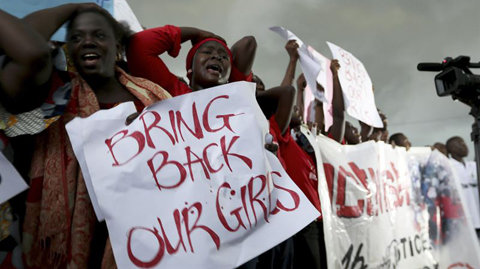
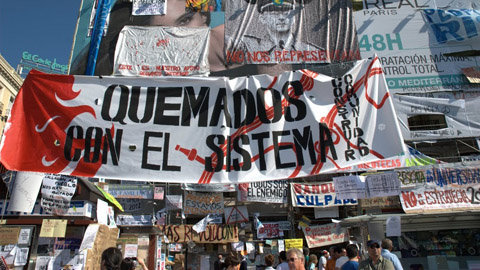
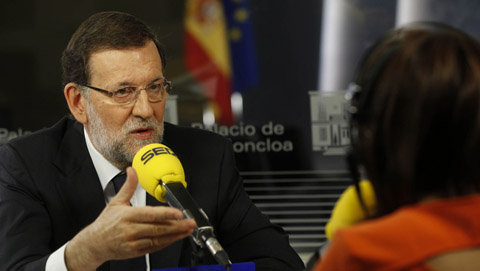

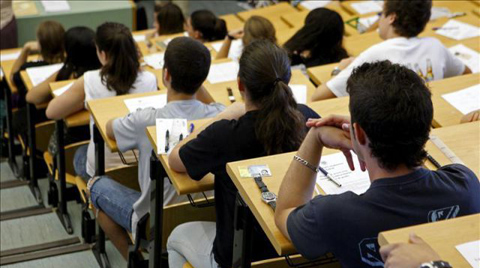
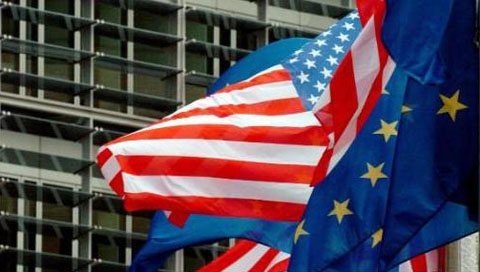
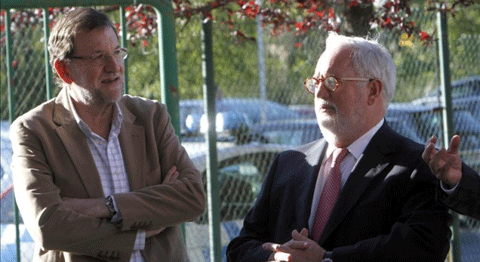


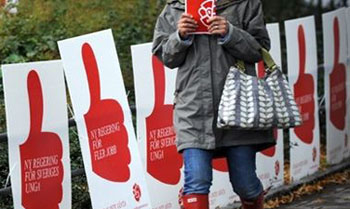



No comments:
Post a Comment